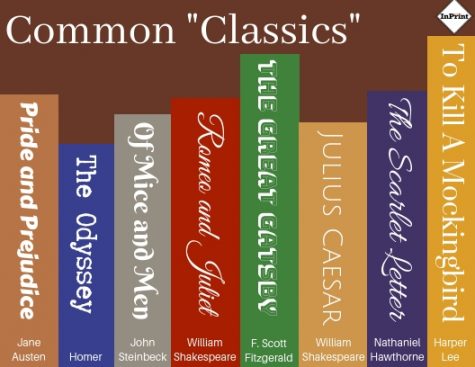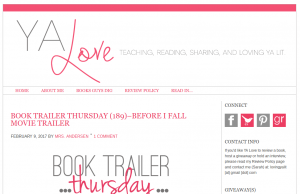Opinion: Reading “classic” novels is necessary in high school
December 14, 2018
Whether a reader is 16 or 76, reading a piece for the first time or the fifth time, “classic” pieces of literature appeal to all types and groups of people. Although many students groan when they hear the words “Romeo and Juliet,” the importance of reading and teaching “classics” in high schools can never be over-stressed.

Many pieces read in high school literature classes are classic novels including the ones shown here.
Not only are “classic” pieces entertaining, but they also exercise the brain. In a study done by Michigan State University, reading a novel such as “Pride and Prejudice” by Jane Austen can increase blood flow to areas of the brain beyond those associated with attention and comprehension functions. In one test subject, literary analysis activated areas used to place ourselves spatially in the world and areas dedicated to physical activity.
This demonstrates that reading “classic” pieces challenge the brain in different ways than reading for leisure. “Classics” require more concentration and a higher thinking level in order for a reader to fully appreciate the messages embedded in them.
“Novels in the realm of ‘This Side of Paradise’, ‘Lord of the Flies’ and ‘Pride and Prejudice’, require a stretching of the neural bands in order to fully appreciate the Author’s creation,” English teacher Brett Mead said. “These novels often require a thought process in order to work through them.”
In contrast to the “classics,” many popular novels published today don’t offer as much intellectual value. Although reading to relax your brain after a long day should not be frowned upon, the pieces covered in high school curriculum should expand students’ mental horizons.
“It is just important to understand,” Mead said, “that reading works at the sixth to eighth grade reading level, which many popular novels today are, does not prepare students for the level of comprehension, processing and volume that they will face in college.”
“Classic” novels have been able to stand the test of time because no matter when they are read, people can take away something from them. As Italo Calvino, author of “Why Read the Classics,” said: “A classic is a book that has never finished saying what it has to say.”
Overall, the Fenton High curriculum includes just enough “classics” that it is beneficial to the students reading them, but not overkill. What is important in the future is that the “classics” don’t become replaced by different, inferior pieces.












